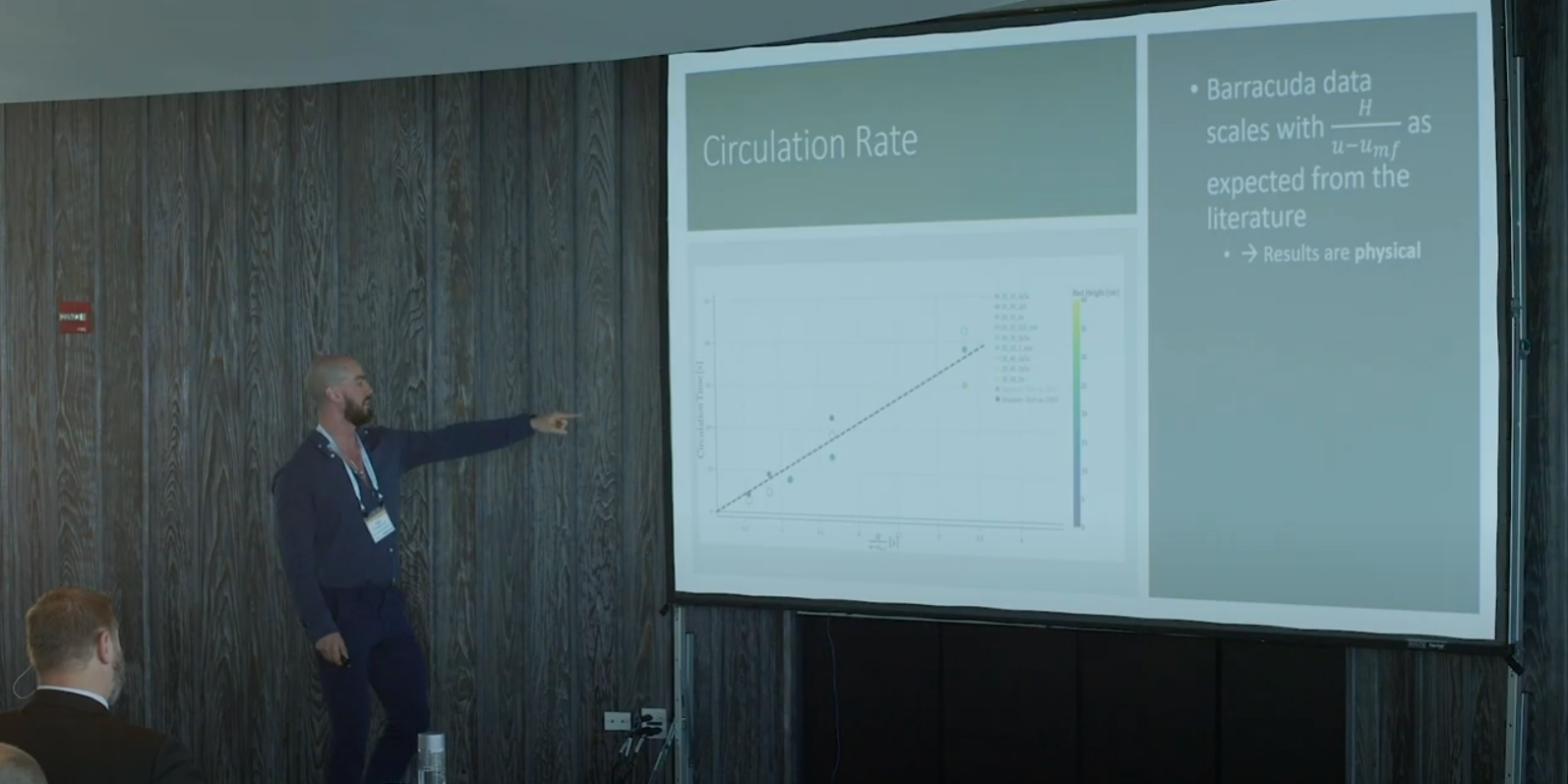Also available on Youtube.
About This Presentation
Presented by
Kit Windows-Yule of University of Birmingham at the 2022 Barracuda Virtual Reactor Users’ Conference.
Summary
The plastic waste crisis is one of the great global challenges facing contemporary society. This talk concerns a novel, fluidised-bed-based plastic recycling system, detailing the synergistic use of MP-PIC modelling and positron emission particle tracking (PEPT) experimentation as a means to gain insight into the hydrodynamics of these complex systems, and thus develop their capabilities and optimise their performance.
In the talk, we will provide an overview of the most recent results of an ongoing, long-term funded collaboration between the University of Birmingham and industrial partners Recycling Technologies Ltd., discussing: the acquisition of PEPT data from both laboratory experiments and unique on-site campaigns at Recycling Technologies’ HQ; the use of the detailed, three-dimensional flow fields acquired to rigorously calibrate and validate Barracuda models of these systems; the use of these, alongside real process data, to create models of full, industrial-scale systems; and the use of Barracuda models at all scales to gain detailed, novel insight into the dynamics of the systems’ hydrodynamics, and how this new knowledge is being used to develop, improve and optimise the plastic recycling process
About the Speaker
Dr. Kit Windows-Yule is a lecturer in the University of Birmingham’s School of Chemical Engineering, working jointly in the School of Physics and Astronomy’s Positron Imaging Centre, a Turing Fellow, and a two-time Royal Academy of Engineering Industrial Fellow. His research interests concern the imaging and numerical modelling of particulate and multiphase systems, employing a diverse range of techniques including X-Ray Tomography, Particle Tracking Velocimetry (PTV), Multi-Phase Particle-in-Cell (MP-PIC) and Discrete Element Method (DEM) modelling, Computational Fluid Dynamics (CFD), and most notably Positron Emission Particle Tracking (PEPT). His research aims to address significant contemporary challenges in science, medicine, and industry by exploiting the synergy of experimental techniques, numerical simulation, and machine-learning methodologies.

